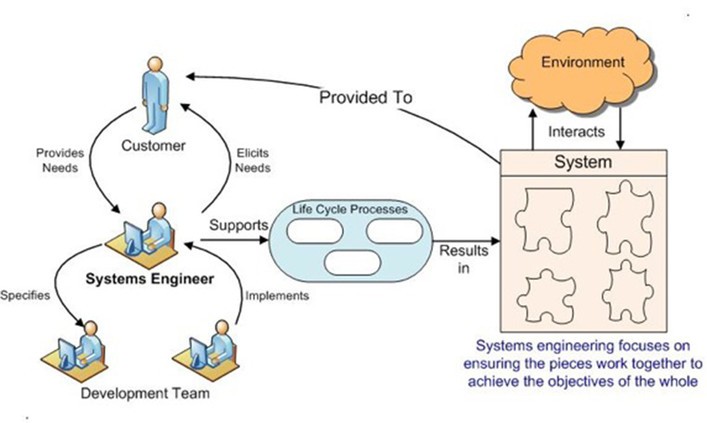Throughout the years, I’ve had the pleasure to meet people from all over the world and with different backgrounds. Usually, one of the first topics we talk about is what we do for a living. Unfortunately, there are several interpretations of my profession (Systems Engineering), which commonly lead to entangled faces when I briefly explain the actual theory behind it.
Common misconceptions include the idea that this field of study is dedicated to programming, computer repair, computer networks, virtual machines, etc.
It just isn’t.
As a matter of fact, the Systems Engineering Body of Knowledge (SEBoK, source) states that:
Systems engineering (SE) is an interdisciplinary approach and means to enable the realization of successful systems. Successful systems must satisfy the needs of their customers, users and other stakeholders.
The International Council on Systems Engineering (INCOSE, source) adds:
Systems Engineering integrates all the disciplines and specialty groups into a team effort forming a structured development process that proceeds from concept to production to operation. Systems Engineering considers both the business and the technical needs of all customers with the goal of providing a quality product that meets the user needs.

A more detailed description has been provided by John MacCarthy, from the Institute for Systems Research of the University of Maryland, in the following video:
Finally, according to Wikipedia (source):
Systems engineering is an interdisciplinary field of engineering that focuses on how to design and manage complex engineering systems over their life cycles. Issues such as requirements engineering, reliability, logistics, coordination of different teams, testing and evaluation, maintainability and many other disciplines necessary for successful system design, development, implementation, and ultimate decommission become more difficult when dealing with large or complex projects. Systems engineering deals with work-processes, optimization methods, and risk management tools in such projects. It overlaps technical and human-centered disciplines such as control engineering, industrial engineering, software engineering, organizational studies, and project management. Systems engineering ensures that all likely aspects of a project or system are considered, and integrated into a whole.
The systems engineering process is a discovery process that is quite unlike a manufacturing process. A manufacturing process is focused on repetitive activities that achieve high quality outputs with minimum cost and time. The systems engineering process must begin by discovering the real problems that need to be resolved, and identify the most probable or highest impact failures that can occur – systems engineering involves finding elegant solutions to these problems.
I hope this brief article helps everyone gain a better understanding of what Systems Engineering truly is.
